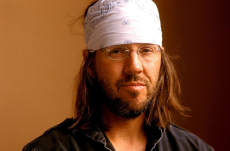
Email: reecejordan98@hotmail.co.uk
Total Article : 168
About Me:18-year-old sixth form student, studying English Literature, History and Government and Politics. My articles will broadly cover topics from the current affairs of politics to reviews of books and albums, as well as adding my own creative pieces, whether it be short fiction or general opinion.

After insisting that ‘he won’t even try to describe the… furious mental back-and-forth’ when deciding to commit suicide, he does exactly that: ‘This is the last glass of milk I’ll ever drink’ / ‘This is the last time I will tie my shoe’ / ‘I won’t see the sun come up tomorrow or gradually undim and resolve,’ which goes on for almost another page. It’s as if the self-censorial, ‘jaded’ part of Neal attempts at halting his narrative but the ‘inner sap’ and its fundamental need to express overpowers it. It’s a poignant part of the story that further demonstrates that the refusal to appear too commonplace can be inhibiting for expression.
Despite this example, Neal’s desire ‘to be taken very seriously’ by those ‘jaded, sophisticated people’ is one that precipitates his suicide. He states early on in the story that he socialised with people who were ‘dry, oblique’ and ‘contemptuous of clichés,’ and to impress them would do ‘things like yawning and looking at [his] nails and saying things like, ‘Am I happy? is one of them questions that, if it has got to be asked, more or less dictates its own answer,’ etc.’ The use of ‘etc.’ renders the description ironic – it denotes that those who are ‘contemptuous of clichés’ become clichéd themselves. Thus, Wallace suggests that clichés pervade society, and that to think of oneself as exempt from them is fallacious. Yet it is exactly this line of thinking – of a fixation on uniqueness – that Neal succumbs to. After coming to the conclusion that he is incapable of love, he sees on an episode of Cheers that one of the characters points it out as a cliché: ‘If I have one more yuppie come in and start whining to me I’m going to throw up!’ which, Neal tells us, ‘got a huge laugh from the show’s studio audience, which meant that they – and so by demographic extension the whole national audience at home – recognized what a cliché’ it was.’ Neal tells us that this ‘more or less destroyed [him]’ and that ‘it was the next morning after that that [he] woke up having decided [he] was going to kill myself.’ This not only gestures, again, towards pop culture’s significance in the construction of clichés, but it also illustrates that Neal’s life was dictated by ‘the supposed audience’ to his life. Neal believes himself to have a ‘cliché of the heart’, one that is not ‘fully authentic or genuine’ and finds this unendurable. Because clichés carry within them latent truths of humanity, the complete denial of them and the search for total originality would mean the denial of what is to be human. Therefore, Neal’s dream about his construction of himself as a statue has resonance not ‘because they were warnings from [his] subconscious that [he] was hollow,' but it is because Neal’s desired conception of himself, one of complete originality and devoid of clichés, is so unhuman. Clichés, in their overuse, indicate a commonality between people. Neal’s yearning to be excluded from them can only be satisfied by one conclusion, which is to kill himself.
Image Credits: npr.org

0 Comment:
Be the first one to comment on this article.